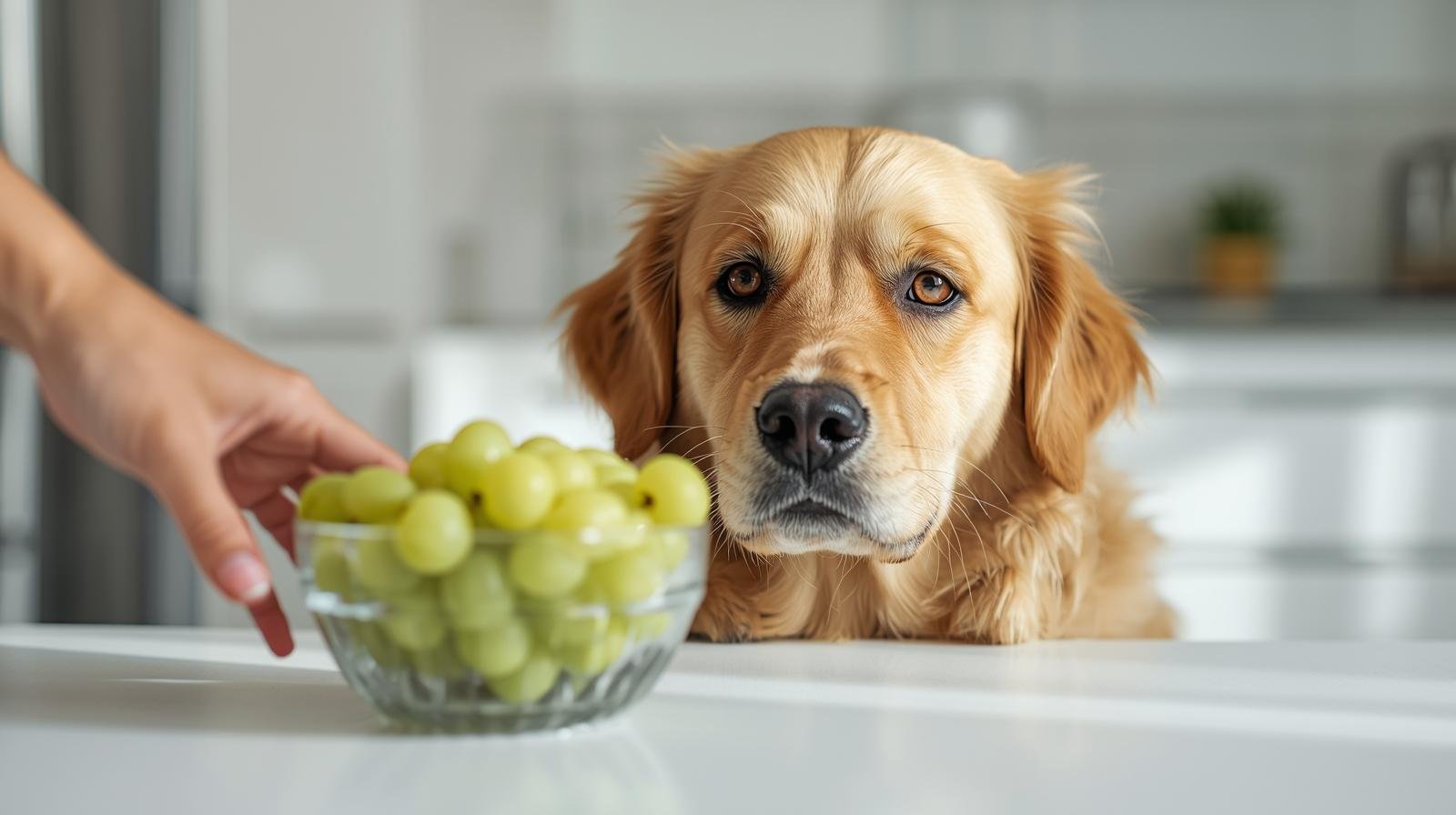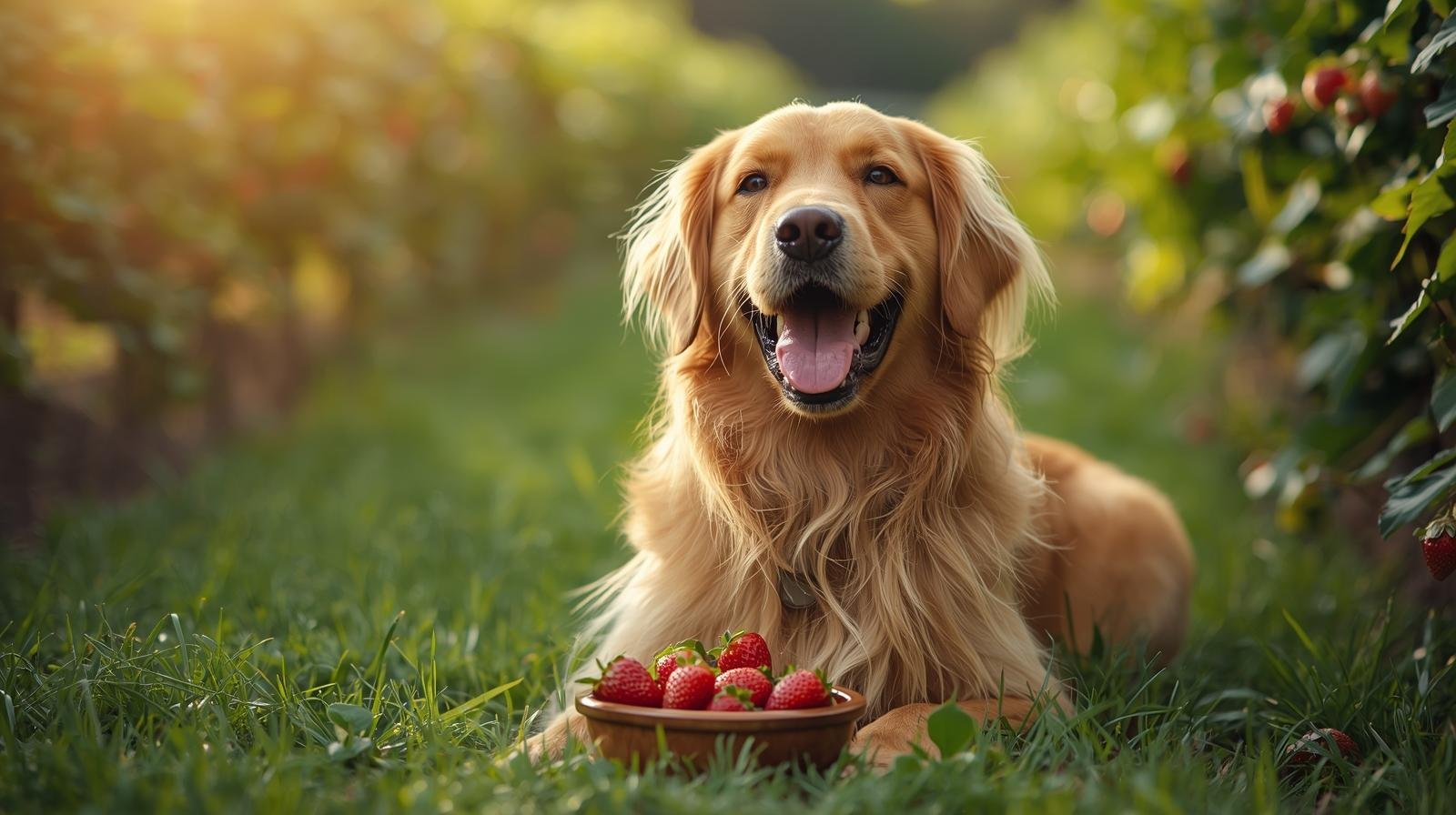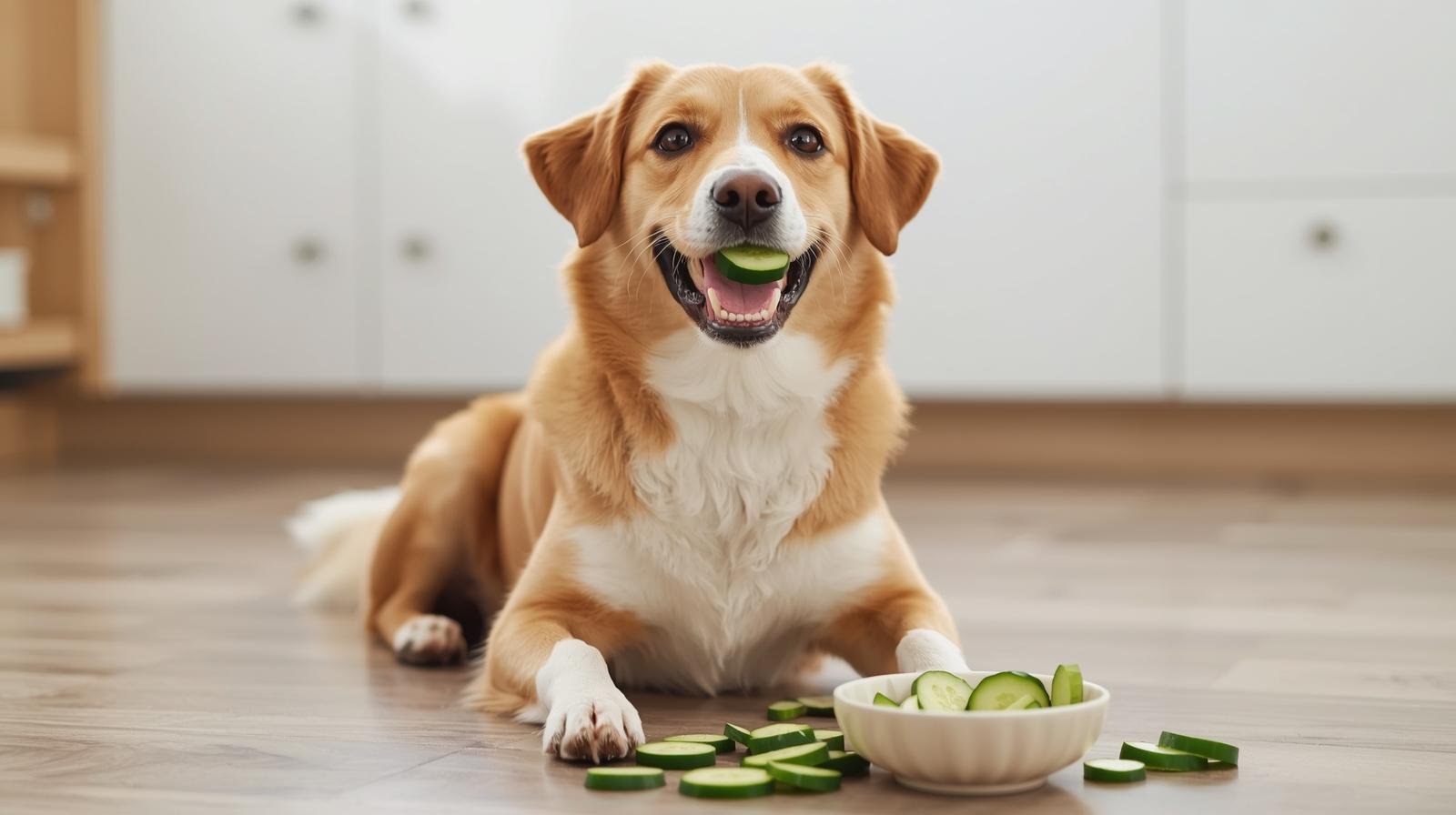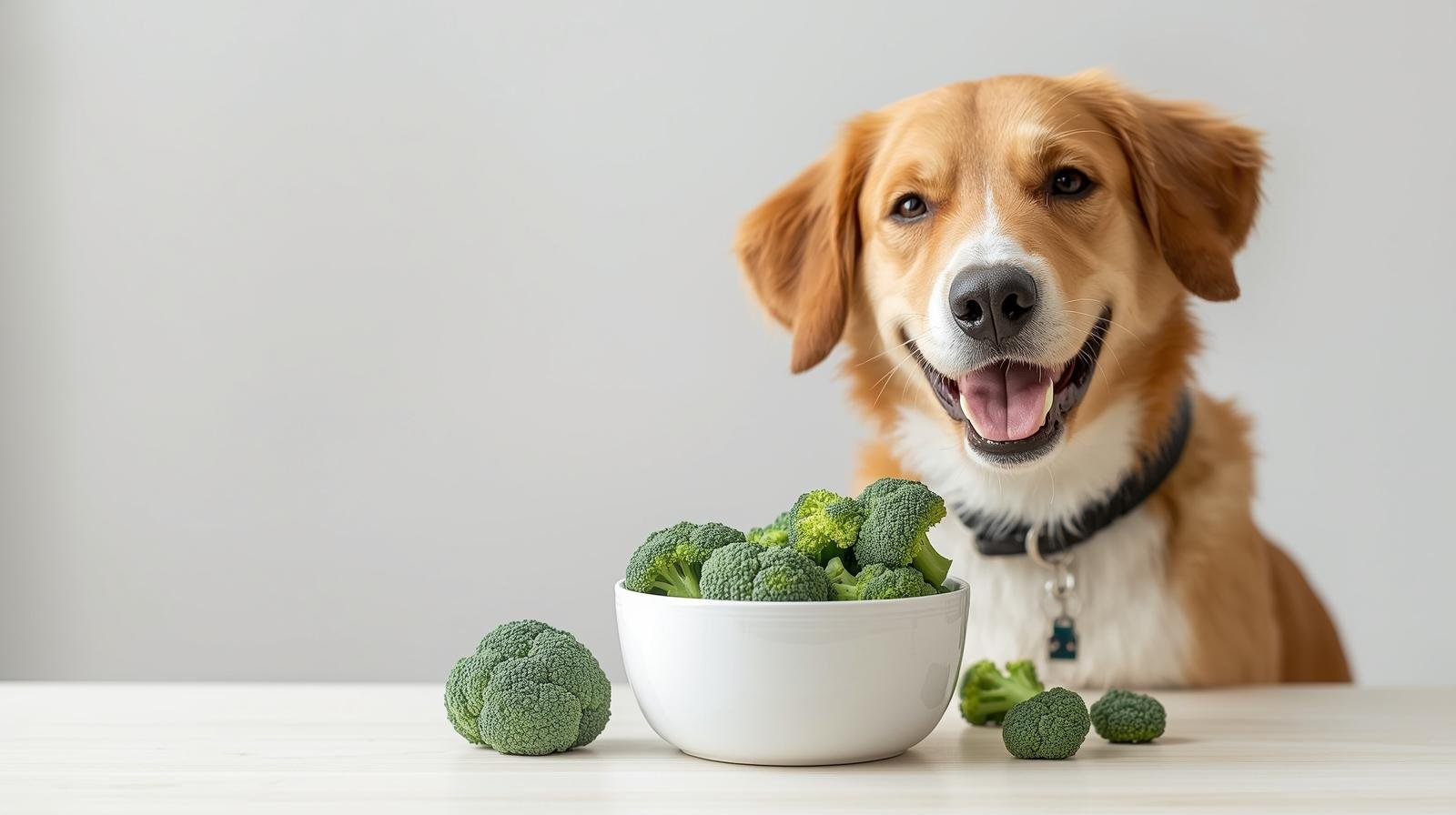Can Dogs Eat Grapes

Many pet owners love sharing snacks with their furry friends, but not all human foods are safe for dogs. One common question that arises is “Can dogs eat grapes?” The answer is a firm no. Grapes and raisins are extremely toxic to dogs, regardless of their breed, size, or age. Even a small quantity can cause severe health problems, including acute kidney failure.
In this detailed guide, we’ll discuss why dogs can’t eat grapes, the symptoms of grape poisoning, what to do if your dog eats one, and safe fruit alternatives your pet can enjoy. Understanding the risks can help you keep your dog healthy, happy, and out of danger.
Why Can’t Dogs Eat Grapes?
The exact substance in grapes that causes toxicity in dogs is still unknown, but what we do know is that grapes (and raisins) can lead to rapid kidney failure. Veterinarians across the world warn that even one or two grapes can trigger poisoning in sensitive dogs.
Whether they are seeded, seedless, red, or green, all types of grapes are dangerous. Grape toxicity doesn’t depend on the variety or where they are grown — the reaction occurs in all dogs, and even small amounts can be fatal.
Key reasons why dogs should never eat grapes include:
- Grapes can cause vomiting and diarrhea within hours.
- They may lead to lethargy and dehydration.
- They can cause irreversible kidney damage.
- Dogs have different sensitivities, meaning some may get sick from fewer grapes than others.
How Many Grapes Are Toxic to Dogs?
There is no safe number of grapes for dogs. Some dogs might show symptoms after eating just one grape, while others might tolerate a few without immediate signs but it’s never worth the risk.
Veterinary experts advise treating any amount of grape ingestion as a medical emergency. Even a single grape or raisin can result in poisoning that progresses rapidly if untreated. The same rule applies to grape-based foods, such as:
- Raisins
- Trail mix containing raisins
- Grape juice
- Wine
- Grape-flavored candy or jelly
All of these should be completely avoided in a dog’s diet.
Symptoms of Grape Poisoning in Dogs
Recognizing the signs of grape poisoning can save your dog’s life. Symptoms usually appear within a few hours after ingestion but can vary based on the dog’s size, the amount eaten, and individual sensitivity.
Common symptoms include:
- Vomiting and diarrhea (often within 6–12 hours)
- Loss of appetite
- Lethargy or weakness
- Abdominal pain
- Dehydration (dry nose, sunken eyes, panting)
- Trembling or unsteady walking
- Reduced urine output or complete inability to urinate
If left untreated, grape toxicity can lead to acute renal failure, which can be fatal.
What to Do If Your Dog Eats Grapes
If you suspect your dog has eaten grapes or raisins, act immediately-Time is critical. Here’s what you should do:
1.Contact your veterinarian immediately.
Even if your dog seems fine, you should treat this as an emergency. Provide details about how many grapes were eaten and when.
2.Call an emergency pet poison helpline.
You can contact services like the ASPCA Animal Poison Control Center or Pet Poison Helpline for immediate advice.
3.Do not try home remedies unless directed by a vet.
Some pet owners may try to induce vomiting, but this should only be done under veterinary supervision. Improper methods can worsen the condition.
Provide supportive care.
The vet may give your dog activated charcoal, IV fluids, or medications to help flush out toxins and protect the kidneys. Early treatment dramatically increases recovery chances.
Long-Term Effects of Grape Ingestion
Even if your dog survives the initial poisoning, grape toxicity can cause long-term kidney damage. Dogs that experience kidney failure may require lifelong monitoring, dietary changes, and fluid therapy.
That’s why prevention is always better than cure. Keeping grapes and raisins away from your dog and ensuring guests or children don’t share them is essential for safety.
Safe Fruits Dogs Can Eat Instead
While grapes are off-limits, there are many safe and nutritious fruits you can give your dog in moderation. Here are some excellent alternatives:
- Apples (without seeds) :Rich in vitamins A and C.
- Bananas : High in potassium and easy to digest.
- Blueberries: Full of antioxidants for immune health.
- Watermelon (seedless) : Great for hydration in summer.
Strawberries : Sweet, low-calorie treats packed with fiber. - Cantaloupe : Loaded with vitamins but should be served in small pieces.
Always introduce new fruits slowly and in small amounts to make sure your dog doesn’t have any digestive reactions.
How to Prevent Accidental Grape Ingestion
To ensure your pet’s safety, follow these preventive steps:
- Store grapes and raisins securely in a sealed container out of reach.
- Educate family members (especially children) about the dangers of feeding grapes to dogs.
- Avoid sharing human snacks unless you are 100% sure they’re safe for pets.
- Keep a pet emergency contact list handy in case of accidental ingestion.
Simple awareness can make all the difference in preventing a dangerous situation.
FAQs:Normally People Asked Questions
Can dogs eat grapes?
No. Grapes are toxic to dogs and should never be given.
Are raisins safe for dogs?
No. Raisins are dried grapes and are just as dangerous.
What happens if a dog eats grapes?
It can cause vomiting, diarrhea, kidney failure, and even death.
How many grapes are toxic to dogs?
Even a small amount (1–2 grapes) can be harmful, depending on the dog.
Why are grapes toxic to dogs?
The exact toxin is unknown, but they can severely damage the kidneys.
What should I do if my dog eats grapes?
Contact a veterinarian or pet poison helpline immediately.
Are all dogs affected by grapes?
No, sensitivity varies, but any dog can be at risk.
Can puppies eat grapes?
Absolutely not. Puppies are just as vulnerable as adult dogs.
What fruits are safe for dogs instead?
Apples (no seeds), bananas, and blueberries in moderation are safe.
Can dogs recover after eating grapes?
Yes, if treated quickly, but delays can be life-threatening.
Conclusion
So, can dogs eat grapes? Absolutely not. Grapes and raisins are highly toxic and can cause severe poisoning or kidney failure, even in small quantities. Responsible pet ownership means knowing which foods are harmful and keeping them far away from your furry friends.
If your dog accidentally eats grapes, don’t wait for symptoms to appear — contact your vet immediately. With quick action, professional care, and a commitment to safe feeding habits, you can protect your dog’s health and well-being for years to come.
Remember, there are plenty of safe fruits your dog can enjoy, but grapes should never be one of them.





